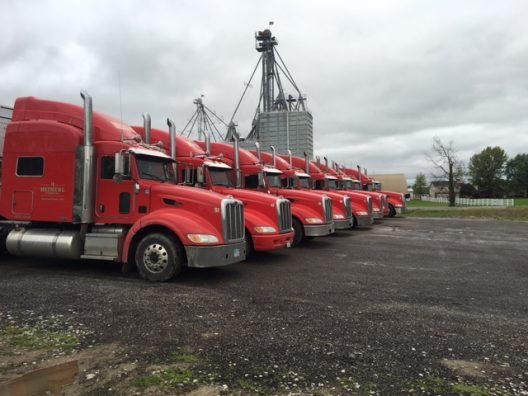Farmer’s Guide to Trucking Regulations available to Ohio Farm Bureau members
The guide includes a farm driver checklist, overview of state and federal regulations and exemptions, CDL qualifications and more.
Read More
UPDATE: On March 23, President Trump signed into law the Consolidated Appropriations Act 2018 (omnibus bill). The bill addressed electronic logging devices and prohibits the enforcement of the ELD mandate on haulers transporting livestock and insects through the remainder of Fiscal Year 2018 (Sept. 30). A waiver for the hauling of all agricultural commodities from ELD requirements, remains in effect until June 18, 2018.
“The prohibition on enforcement will allow time for the agricultural community to continue their work with the Federal Motor Carrier Safety Administration to ensure our unique concerns can be addressed and all rules clarified,” said Leah Curtis, OFBF policy counsel.
ORIGINAL POST FEBRUARY 2018:
Ohio Farm Bureau’s Leah Curtis, policy counsel and senior director of member engagement, explains what electronic logging device requirements mean for those hauling agriculture products.
I heard there is a crackdown on trucks and trailers hauling livestock. Is this true?
There is no official “crackdown” or change in enforcement in relation to hauling by trucks and trailers of agricultural products. There has been no change in the law regarding Commercial Drivers’ License (CDL) requirements or the farm exemptions from certain federal trucking laws. However, the Federal Motor Carrier Safety Administration (FMCSA) did issue a new requirement, often called the “Electronic Logging Device (ELD) Mandate,” that would apply to some farm transportation that is subject to federal trucking regulation. However, that requirement is not in force at this time for most agriculture hauling.
What is the ELD mandate?
The FMCSA issued a rule, which went into effect in December, that requires all commercial drivers subject to the Hours of Service rules to log hours and on-duty time via an electronic logging device.
Does this mean there are new limitations on how far or how much you can drive?
No. The limitations on the hours a driver can be on duty or drive have not changed. Federal law limits the number of hours commercial drivers can be driving and on duty. A driver cannot:
If a farmer does not fit within these exemptions (likely traveling out of state and farther than the 150 miles), they must comply with the Hours of Service requirements.
Does the ELD requirement apply to farmers?
There are two possible answers here:
FMCSA found that there was not a significant safety risk in issuing a waiver specifically for this type of agricultural transportation. The waiver will allow for FMCSA to consider the unique challenges facing the agricultural industry in complying, and to consider further rulemaking consistent with those concerns. FMCSA has issued waivers from the ELD mandate for other types of drivers (outside of agriculture) as well.
Why was ELD a concern for farmers?
There are a number of reasons farmers are concerned about the ELD mandate:


The guide includes a farm driver checklist, overview of state and federal regulations and exemptions, CDL qualifications and more.
Read More


Katie Share of Columbus has been named ExploreAg and Youth Development Specialist for Ohio Farm Bureau.
Read More

Mary Klopfenstein of Delphos has been named Young Ag Professional and Ag Literacy Program Specialist for Ohio Farm Bureau.
Read More

The plan has been updated to give sole proprietors access to more rate stability and a smart solution that offers potential savings on health care.
Read More

The American Farm Bureau Federation, in partnership with Farm Credit, is seeking entrepreneurs to apply online by June 15 for the 2025 Farm Bureau Ag Innovation Challenge.
Read More

Adele Flynn of Wellington has been elected treasurer of the Ohio Farm Bureau Federation and now holds the third highest elected office in Ohio’s largest and most influential farm organization.
Read More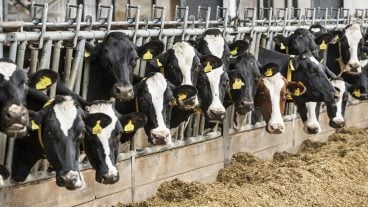
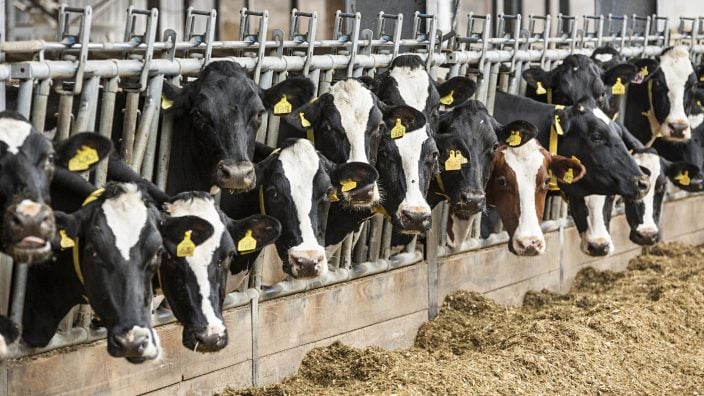
Producers are urged to work with their veterinarian to practice enhanced biosecurity measures and review and limit cattle movements within production systems.
Read More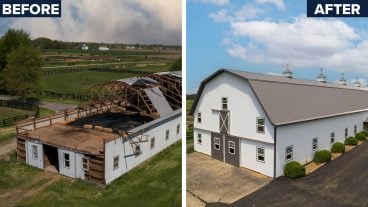
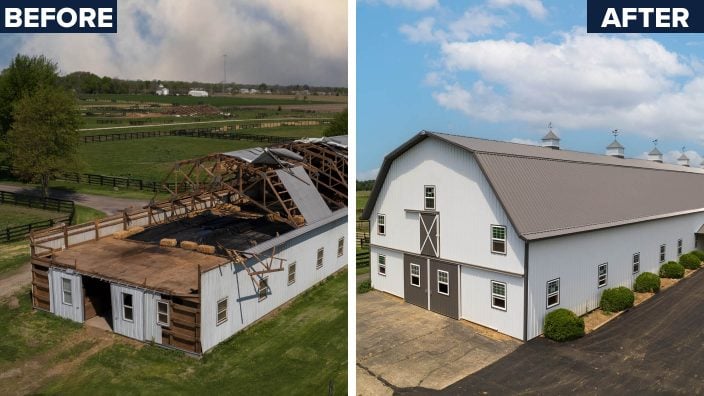
The changing seasons bring with them the need to thoroughly inspect pole barns for any damages that may have occurred during the winter months.
Read More

Hundreds of Ohio businesses and sole proprietors are raving about Ohio Farm Bureau’s Health Benefits plan with lower, predictable costs and easy enrollment and administration options.
Read More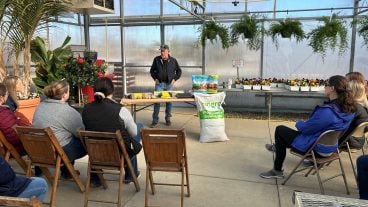
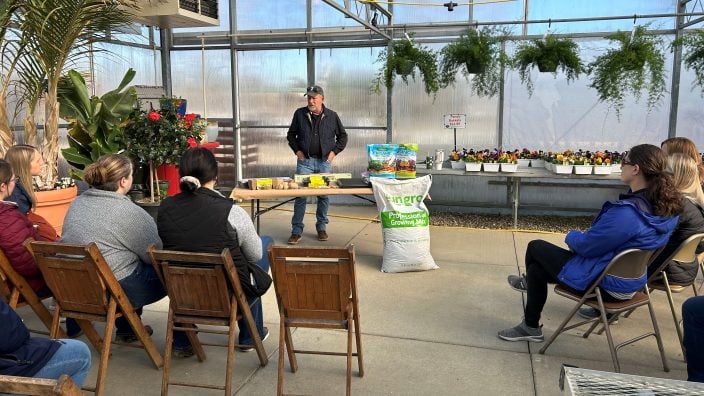
AgriPOWER Class XIV spent a few days in March in Medina and Wayne counties learning more about northern Ohio agriculture from leaders in Ohio Farm Bureau.
Read More